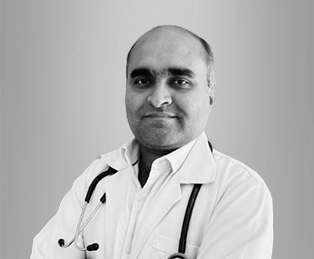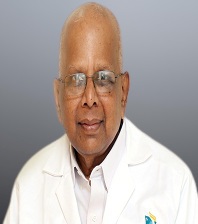Chemotherapy for Cancer: Drugs, Dose, Costs, and Treatment
Dr. Aman Priya Khanna

Treatment Duration
2 Hours
------ To ------4 Hours
Treatment Cost
₹ 10,000
------ To ------₹ 1,70,000

Procedure Name | Chemotherapy |
Alternative Name | Chemo |
Conditions Treated | Cancer |
Benefits of Procedure | Prevent cancer from spreading, Slow the growth of cancer |
Treated By | Oncologist |
Cancer stands as the second leading cause of morbidity and mortality in India. It involves the uncontrolled division and spread of abnormal cells throughout the body. Chemotherapy can control the multiplication of these cells.
A diverse range of chemotherapy drugs is used to treat various cancers. The dosage administered is specific to the type and stage of the disease. Explore this blog to gain insights into different chemotherapy drugs, the procedure, and potential side effects.
You can check Cancer Chemotherapy Cost here.
What is chemotherapy?
Chemotherapy is a procedure to stop the multiplication of cancer-causing cells in the body. A broad spectrum of drugs is employed to treat cancer, either independently or in conjunction with other medications or therapies.
These drugs exhibit variations in chemical composition, prescription and administration methods, efficacy against specific cancer types, and potential side effects.
This cancer treatment is frequently combined with other therapeutic approaches, including surgery, radiation, or hormone therapy. The decision for adjunct therapy considers factors such as:
The cancer stage and type
Overall health prior to treatments
Cancer cell location
Individual treatment preferences
Physiology of Cancer
Delving into the physiology of cancer unveils abnormal cellular behaviour marked by uncontrolled growth and invasive tendencies. Chemotherapy, a pivotal intervention, disrupts cancer cells' cycle, impeding their proliferation and promoting programmed cell death.
Cancer vs Normal Cells:
Cancer cells differ in behaviour, evading normal growth controls.
Uninhibited division, invasion, and metastasis are hallmarks of cancer cells.
Cell Anatomy in Cancer:
Abnormal morphology and tumour formation characterise cancer cells.
Genetic mutations impact cell cycle regulation and apoptosis (the process of programmed cell death).
Unhindered Cell Division:
Cancer cells bypass normal cell cycle checkpoints.
Unchecked cell multiplication contributes to tumour growth.
Chemotherapy Mechanism:
Drugs disrupt various cell cycle stages in cancer cells.
Aimed at halting rapid division and promoting cell death.
Types of chemotherapy
Chemotherapy includes diverse strategies customised to combat different aspects of cancer. Understanding the types is crucial in exploring targeted approaches for effective cancer management.
Neoadjuvant Chemotherapy: Administered before surgery or radiation to reduce tumour size.
Adjuvant Chemotherapy: Given after operation or radiotherapy to eliminate any remaining cancer cells and prevent recurrence.
Curative Chemotherapy: Employed as an alternative to surgery or radiation to eradicate all cancer cells.
Palliative Chemotherapy: Provided to alleviate symptoms or extend a patient's life, acknowledging the eventual fatality of the cancer.
Expert Doctors (10)
NABH Accredited Hospitals (10)


Conditions Treated with Chemotherapy
Chemotherapy is commonly used to treat various types of cancer and some non-cancerous conditions. It is crucial for healthcare professionals to carefully evaluate and customise chemotherapy treatment based on individual patient needs and conditions.
Conditions treated with chemotherapy include:
Benign and Malignant Tumours: It is a primary treatment for various cancers, such as breast cancer, lung cancer, leukaemia, lymphoma, and many others.
Preventing Cancer Recurrence: Chemotherapy may be employed after surgery or radiation therapy to prevent the return of cancer cells.
Autoimmune Diseases: In some cases, chemo drugs may be used to suppress an overactive immune system (Example: Rheumatoid arthritis).
Organ Transplant: Chemotherapy is sometimes used with other treatments to suppress the immune system. This is done before transplantation to prevent rejection.
Who needs chemotherapy?
The decision to undergo chemotherapy is influenced by several factors related to the type and stage of cancer. Here's when chemotherapy might be considered:
Eliminating Cancer: Aim to treat the disease with the goal of achieving complete remission.
Reduce Recurrence Risk: Those who want to lessen the chance of cancer returning after initial treatment.
Impede Growth: Need to stop or slow down the proliferation of malignant cells.
Failed Previous Treatments: Have undergone other interventions like surgery or radiation without success.
Biomarkers and Genetics: Exhibit specific indicators or genetic factors suggesting responsiveness to chemotherapy.
Note: Understanding the specifics of cancer and considering individual health factors helps determine the most appropriate course of action.
Benefits of Chemotherapy
Chemotherapy, a cornerstone in cancer treatment, provides a versatile approach to combating the disease. It can shrink tumours, target cancer cells throughout the body, and offer curative or palliative benefits to patients. The benefits of chemotherapy are as follows:
It is effective in reducing the size of tumours
Helps in eradicating cancer cells and preventing their recurrence
Serves as adjuvant therapy after surgery or radiation
Provides relief from cancer symptoms
Improves the quality of life for patients
Enhances overall treatment efficacy when used in combination with surgery or radiation
Chemo drugs circulate throughout the body, reaching cancer cells in various locations
Manages and controls the spread of cancer to other organs, addressing metastatic disease
Offers customised and patient-specific approaches
Increases survival rates, especially when combined with other therapeutic modalities
Before and on the Day of Chemotherapy
Chemotherapy is a potent intervention for a critical health condition. It requires careful planning and anticipation of potential challenges under the guidance of the medical team. It ensures a better understanding of the treatment for improved readiness.
Explore the chemotherapy before and after steps in detail below.
Before Chemotherapy Treatment
Patients are advised to consult with their oncologists to prepare for the chemotherapy session. They need to keep the following points in mind:
Parameters | Pre-requisites |
Pre-chemo assessments | Blood tests Dental checkup |
Risk evaluation | Side effects Effect on healthy cells |
Anaesthesia | Usually no (administered in very specific cases) |
Fasting | 2 - 24 hours (varies considerably) |
Note: A thorough consultation with your medical oncologist will provide an accurate fasting duration before your chemo session. HexaHealth can help you connect with top cancer specialists and help you at every step.
On the Day of Chemotherapy
On the day of chemotherapy, patients can anticipate specific preparations to ensure a smooth and effective treatment. These preparations include
Parameters | Pre-requisites |
Consent | Mandatory |
Preparation | Check-in Review medical history Procedure briefing Cleaning of surgical site |
Physical Evaluation | Check vitals (BP, Heart rate, Oxygen, Pulse) |
Oncologist Consultation | Final blood test and health check-up |
IV Line | Yes, for inserting fluids and medication |
Anaesthesia | Usually, no. (administered in very specific cases) |
What is chemotherapy procedure?
Intravenous chemotherapy procedures are customised for treatment planning. Modern practices offer outpatient sessions administered by a nurse or infusion specialist. This method allows flexibility and convenience for patients, emphasising a more accessible and streamlined approach to chemotherapy.
To explain how is chemotherapy done through the infusion process, here are the steps:
The team establishes intravenous access if not already present.
A blood sample is obtained for cell count.
The medical oncologist calculates the precise medication dosage.
The patient receives pre-chemotherapy medications, such as fluids or drugs, to prevent side effects.
During the infusion period, patients can rest or engage in leisure activities.
A nurse monitors the patient for allergic or other adverse drug reactions.
Post-infusion steps include IV removal, flushing, and capping for later use.
Vital signs are checked, and an assessment is conducted for immune response or side effects.
After Chemotherapy
After chemotherapy, a crucial recovery period follows, varying for each individual. While some may swiftly regain normalcy, others might experience a more extended recovery process. Here's a general overview of what patients can anticipate during the post-chemotherapy phase:
Hospital Stay:
Duration varies based on treatment plan and individual response.
Ranges from 2-4 hours to even 2-3 weeks post-chemotherapy. The significant variation is due to a number of factors like the stage of cancer, the individual’s tolerance for the intervention, etc.
Recovery at Home:
Review homecare, managing side effects, and when to contact the doctor.
After discharge, prioritise rest and self-care.
Manage side effects with prescribed medications.
Lifestyle Adjustments:
Adopt a healthier lifestyle with balanced nutrition and guidance from an oncology nutritionist.
Include regular exercise and sufficient rest for the recovery process.
Monitoring for Complications:
Stay vigilant for any signs of complications.
Promptly report symptoms to the healthcare team for timely intervention.
Follow-up Appointments:
Regular appointments to assess treatment outcomes.
Address concerns and plan ongoing care.
Individuals need to collaborate closely with their medical team, following personalised recovery plans to achieve optimal well-being post-chemotherapy.
Side Effects of Chemotherapy
Chemotherapy is often associated with ill effects due to its impact on rapidly dividing cells in the body. These effects can vary widely and are essential to understand for comprehensive patient care.
Common side effects include:
It can trigger sickness and vomiting.
Many patients go through temporary or permanent hair loss.
Profound tiredness is a common side effect.
A weakened immune system increases susceptibility to infections.
Reduced red blood cell count may lead to fatigue and weakness.
Chemotherapy can cause serious and painful sores in the mouth.
People may experience loss of appetite or weight changes.
Reduced platelet count can result in easy bruising and bleeding.
Altered bowel habits are common adverse effects.
Peripheral neuropathy may cause tingling or numbness in extremities.
While chemotherapy may involve side effects, its benefits in treating and managing cancer make it invaluable.
When to consult a doctor?
It's essential for patients undergoing chemotherapy to be vigilant about potential complications. Knowing when to consult a doctor ensures timely intervention and improved overall well-being during chemotherapy.
Key signs to consult a doctor include:
Fever, chills, or sweats may indicate an infection that requires prompt attention
Diarrhoea that persists or is accompanied by blood
Nausea and vomiting that become severe, affecting a person’s ability to eat or drink
Difficulty eating or drinking
An overwhelming weakness that hinders daily activities
Redness, swelling, or drainage from any site where an IV line is inserted
Any new skin rash or blister development
Yellowing of the skin or eyes
Persistent or intense abdominal pain
A very bad headache or one that does not improve
Deterioration in the cough or breathing, especially at rest or during simple tasks
A burning sensation while urinating
Risk of Delaying Chemotherapy
Timely initiation of chemotherapy is critical for effective cancer treatment. Delays can impact prognosis, therapeutic options, and overall health.
Progression: Postponing chemotherapy allows cancer to grow, reducing treatment efficacy.
Increased Size: Tumours may grow larger, complicating curative options.
Reduced Effectiveness: Timely chemotherapy is crucial for optimal response.
Advanced Stage Diagnosis: Holding up leads to late-stage identification, impacting prognosis (the likely course of a medical condition).
Missed Cure Opportunity: Early intervention improves chances of remission.
Limited Options: Stalling chemo may restrict available treatments.
Increased Intensity: Delaying may necessitate more aggressive treatment with a high dosage.
Impact on Overall Health: It affects general well-being and resilience.
Emotional Impact: Putting it off might cause heightened emotional distress.
Extended Recovery: Postponement prolongs the overall recovery period.
Cost of Chemotherapy
The average price range for chemotherapy is around ₹ 45,000. However, it varies considerably due to the nature and stage of cancer, individual conditions, etc. Below is an estimated cost associated with each chemo session:
Procedure Name | Chemotherapy |
Minimum cost | ₹ 10,000 |
Maximum amount | ₹ 1,50,000 |
Factors Affecting the Cost of Chemotherapy
The duration, frequency, and type of chemotherapy are some of the factors affecting costs in general. It is essential to know about these elements in detail before undergoing the procedure.
Type of Hospital: The choice of the hospital affects the cost, with prestigious institutions often having higher fees.
Diagnostic Tests: Expenses include various preoperative tests to assess the patient's condition.
Surgeon’s Fees: The professional charges of a reputed surgeon are higher than those of other surgeons.
Hospital Stay: Longer stays incur additional costs for accommodation and services.
Post-operative Care: Expenses related to follow-up visits, medications, and rehabilitation.
Type of Chemotherapy: Different drugs have varying costs, influencing the overall expense.
Treatment Setting: Whether chemotherapy is administered in an outpatient clinic, hospital, or at home affects the total cost.
HexaHealth: Your Compassionate Partner in Cancer Care!
Chemotherapy is a prevalent cancer treatment. It can be standalone or combined with radiation, surgery, or other drug therapies. Customised to cancer stage and health, it may result in short-term and long-term side effects. Before going ahead with this therapy, discuss the risks and benefits with your healthcare provider.
Opting for HexaHealth for chemotherapy guarantees personalized support during your cancer treatment. Our experienced professionals deliver detailed guidance and connect you with healthcare experts. With HexaHealth, you gain access to a supportive network for an informed and comfortable chemotherapy experience.
Frequently Asked Questions (FAQ)
What is chemotherapy?
Chemotherapy uses medicines to target and eliminate rapidly dividing cells in the body. Its primary application is in cancer treatment, where the accelerated growth of cancer cells is effectively stopped by these powerful drugs.
How does chemotherapy work?
Chemotherapy works by targeting and disrupting fast-growing cells in the body, particularly cancer cells. It interferes with the cell division process, preventing the cancer cells from proliferating and eventually leading to their death.
What types of cancer can be treated with chemotherapy?
Chemotherapy is used for various types of cancer, including but not limited to:
Breast cancer
Lung cancer
Colorectal cancer
Leukaemia
Lymphoma
Pancreatic cancer
Testicular cancer
Is chemotherapy painful?
If you're wondering is chemotherapy painful, then don't be stressed. Pain is typically not a major concern during chemotherapy sessions, especially with oral medications or topical creams. If injections are involved, you might feel a momentary sting or prick during needle insertion. It may result in mild burning as the medication enters the body, gradually subsiding during treatment.
How is chemotherapy administered?
Chemotherapy can be administered through various methods:
Intravenous (IV) Chemotherapy: Medication is delivered directly into a vein through a needle or catheter.
Oral Chemotherapy: Drugs are taken in the form of pills or liquid.
Injections: Chemo drugs may be injected into muscles, under the skin, or directly into a tumour.
Intrathecal Chemotherapy: Prescribed medication is delivered directly into the cerebrospinal fluid through a lumbar puncture.
Intra-arterial Chemotherapy: Medication is delivered directly into the artery that supplies the tumour.
What are the side effects of chemotherapy?
The side effects can vary amongst individual based on their cancer site/location/types/ stages, etc. Below are a few side effects (not every side effect mentioned in order) that an individual may face
Fatigue
Hair loss
Bruising and bleeding
Anaemia, low red blood cell counts
Nausea and vomiting
Appetite changes and weight loss
Constipation
Diarrhoea
Sores in the mouth, tongue, and throat
Poor concentration, often called chemo brain
Can chemotherapy be used in combination with other cancer treatments?
Chemotherapy is frequently combined with other cancer treatments like surgery, radiation therapy, and immunotherapy to optimise effectiveness. The choice between radiotherapy vs chemotherapy or other treatments depends on the cancer type and stage.
How long does a course of chemotherapy usually last?
Typically, a chemotherapy regimen spans from 3 to 6 months, though the duration may vary. The frequency of each treatment cycle and the overall length of the therapy are influenced by various factors.
Type of cancer
Stage of cancer
Treatment goal
Specific chemotherapy
Individual response to the therapy
Is chemotherapy safe during pregnancy?
Pregnancy during chemotherapy poses potential risks due to severe side effects. Consultation with a doctor is essential for suitable contraception methods, and immediate notification is crucial if pregnancy occurs during treatment. HexaHealth can help you connect with top cancer specialists.
Can chemotherapy cure cancer?
The effectiveness of chemotherapy in curing cancer depends on several factors. In some cases, chemotherapy can achieve a complete cure, while in others, it may control the growth of cancer.
Consultation with a doctor is essential for personalised information and guidance. HexaHealth can help you connect with top cancer specialists.
How is the chemotherapy regimen determined?
The chemotherapy regimen is carefully crafted by oncologists, considering:
Type and stage of cancer
Patient's health
Treatment goals
What should I expect during a chemotherapy session?
During a chemotherapy session, patients can expect:
Preparation: Blood samples, meeting with the oncologist, and vital sign checks.
Treatment Administration: Intravenous or oral chemotherapy, tailored to the patient's cancer type and stage.
Duration: Session length varies, lasting from minutes to hours or days, depending on the treatment.
Accompaniment: Patients may bring items for comfort, such as phones, books, or blankets.
Post-Treatment: Monitoring vital signs, removing IV, and discussing post-treatment expectations and potential side effects.
How much does each session of chemotherapy cost?
The cost of each chemotherapy session depends on various factors, including the type of chemotherapy, hospital fees, diagnostic tests, surgeon's fees, and post-operative care. Costs can vary widely. It's essential to consider these factors, along with insurance coverage and potential financial assistance.
More Treatment options
References
All the articles on HexaHealth are supported by verified medically-recognized sources such as; peer-reviewed academic research papers, research institutions, and medical journals. Our medical reviewers also check references of the articles to prioritize accuracy and relevance. Refer to our detailed editorial policy for more information.
- Chemotherapy: What it is, what to expect, side effects, and outlook [Internet]. www.medicalnewstoday.com. 2022.

- Mayo Clinic Staff. Chemotherapy - Mayo Clinic [Internet]. www.mayoclinic.org. 2022.

- Cleveland Clinic. Chemotherapy: What Is It, Types & Causes [Internet]. Cleveland Clinic. 2022.

- National Cancer Institute. Chemotherapy [Internet]. National Cancer Institute. Cancer.gov; 2022.

- American Cancer Society. How Does Chemo Work? | Types of Chemotherapy [Internet]. www.cancer.org. 2019.

- WebMD. Chemotherapy: How It Works and How You’ll Feel [Internet]. WebMD. WebMD; 2013.

- NHS . Overview - Chemotherapy [Internet]. NHS. 2023.

- Healthline. Chemotherapy: Uses, Side Effects, and Procedure [Internet]. Healthline. 2012.

- Cancer Chemotherapy [Internet]. Medlineplus.gov. National Library of Medicine; 2019.

- Macmillan Cancer Support. Chemotherapy [Internet]. Macmillan.org.uk. 2020.

- When you might have chemotherapy | Cancer in general | Cancer Research UK [Internet]. www.cancerresearchuk.org.

- Advantages and disadvantages of chemotherapy [Internet]. Pancreatic Cancer UK. 2022.

- cycles T text provides general information S assumes no liability for the information given being complete or correct D to varying update, Text SCDM up-to-Date DTR in the. Topic: Cancer in India [Internet]. Statista. [cited 2024 Feb 3].

- What you need to know about fasting and cancer [Internet]. Cancer Treatment Centers of America. 2021.

- Four Reasons Cancer Patients Need To See Their Dentist [Internet]. Cancer Treatment Centers of America. 2018.

Last Updated on: 21 December 2024
Reviewer

Dr. Aman Priya Khanna
MBBS, DNB General Surgery, FMAS, FIAGES, FALS Bariatric, MNAMS General Surgery
13 Years Experience
Dr Aman Priya Khanna is a highly experienced and National Board–Certified Laparoscopic, GI, and Bariatric Surgeon with over 13 years of clinical expertise.
He is widely regarded as one of the best bariatric surgeons in Ahmedabad, ...View More
Author

She has extensive experience in content and regulatory writing with reputed organisations like Sun Pharmaceuticals and Innodata. Skilled in SEO and passionate about creating informative and engaging medical conten...View More
Cancer Chemotherapy in Top Cities
Cancer Chemotherapy Cost in Top Cities
Latest Health Articles
Other Treatments in Your City























